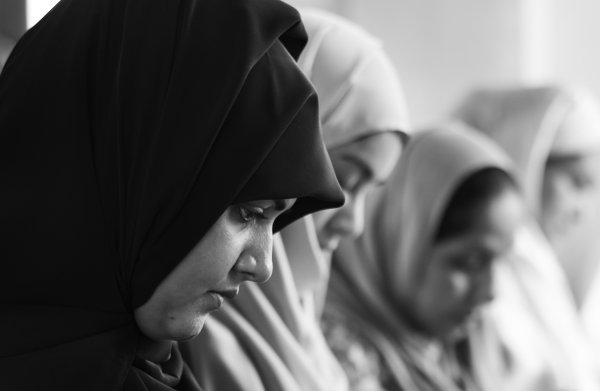4 Things That Women In Saudi Arabia Still Can’t Do
Tags: opinion

It was quite surprising to see a set of social reforms in Saudi Arabia that granted women freedom. They were previously prohibited from doing several things under the Islamic Law in Saudi Arabia.
Crown Prince Mohammed bin Salman has granted women the right to have passports and travel abroad. They can even live independently without a “wali” or a male guardian.
Modernizing Saudi Arabia
The crown prince made these changes to modernize Saudi Arabia under Vision 2030. This diversification strategy will help the nation “eradicate the remnants of extremism” and encourage a “moderate” version of Islamic law. He also changed the regulations to grant women the right to drive for the first time in the kingdom.
Subscribe to our Youtube channel, new videos every week:
Even though the country is moving towards modernization there are several things that women cannot do.
Women can now visit the site of Mecca without a male guardian but can only do so as a part of a group. A male relative needs to permit a woman to marry or to start a business endeavor. They also need to get permission from the males to leave a domestic abuse shelter.
Critics believe that these reforms are mere “propaganda”. Duaa Dhainy, a researcher at the European-Saudi Organisation for Human Rights, said the reforms “do not impact the human rights situation in a meaningful way”, Deutsche Welle reported.
READ: SURVEYS: MAJORITY OF AMERICANS DON’T WANT “ARABIC NUMERALS” TAUGHT IN SCHOOL
There have obviously been some changes but such changes have made no major difference. Saudi Arabia is still present in the ten lowest-ranked countries on the World Economic Forum’s 2021 Global Gender Gap report.
The New York Times’ Cairo Bureau Chief Vivian Yee also noted that “it still falls to women in many households to negotiate their freedoms” with male relatives, after several women activists were imprisoned in recent times.
Here Are Some Of The Things That Women Cannot Do In Saudi Arabia
1: Not Follow The Dress Code
Women in Saudi Arabia are required to dress modestly and avoid putting on tight-fits or see-through materials. They should also avoid wearing heavy make-up. The dress code is enforced to varying degrees all across the nation.
Women have to wear the abaya, which is a long, loose garment that has a black headscarf or niqab, over their clothing in public. The crown prince relaxed this dress code and freed them from wearing the abaya in public.
While some conservative Saudis still opt for a black abaya, in cities many are now “opting for conservative but creative alternatives: sporty jumpsuits, business-cut robes, and even kimonos”, The Wall Street Journal reported.
READ: PREGNANT WOMEN HAVING A WORSE TIME THAN YOU: SOCIAL MEDIA HAS THE PROOF
Such changes were observed in 2016 when King Salman stripped the religious police of arrest powers, removing the enforcers of the Saudi dress code.
2: Interact With Men
Saudi Arabia, without a doubt, is one of the world’s most gender-segregated countries. The females have limits on the amount of time they can spend with men (unrelated to them). You can also find strict gender-based rules in public transport or parks.
The nation can bring criminal charges against them if they are mixing unlawfully. Such charges were brought against both parties with the women facing harsher punishment.
While gender segregation in the workplace has not been a legal requirement since 2005, many employers continue to separate the sexes “to balance the conservative values of a majority-male workforce with the country’s apparent desire to get more women into work”, as reported by The Guardian.
3: Choose For An Abortion
A female would require a male guardian’s approval to opt for legal abortion in Saudi Arabia. The law permits abortion only based on health or therapeutic grounds, according to the Center for Reproductive Rights.
The country was one of 32, including the US, Belarus, and Hungary, to sign the Geneva Consensus Declaration in 2020, which states that “there is no international right to abortion, nor any international obligation on the part of states to finance or facilitate abortion.”
4: Disobey The Sharia Law
Family law is absent in Saudi Arabia so marriages and divorces are governed by Sharia law.
The females need the permission of a male guardian to get married. Divorce has become quite complicated for females as compared to the other gender. Until 2019, there was no regulation in place to stop Saudi women from being divorced without their knowledge, which meant they could be left unaware of their alimony rights.
Although the crown prince “appears committed to his social agenda”, The New York Times stressed that “the gulf between strict and tolerant families can be vast”. Several of these women’s rights are dependent on males and even though a chain of social reforms was observed in the last 2 years, the situation for females in Saudi Arabia is still prohibitive.
Leave Comment: